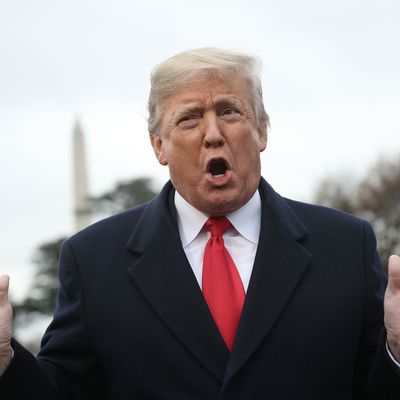
In recent weeks, the U.S. government’s top scientists found that, absent a drastic reduction in global carbon emissions, climate change will shave trillions of dollars off America’s GDP — and condemn tens of thousands of Americans to premature deaths — by 2100.
Meanwhile, the U.S. government’s top diplomats tried to sabotage international cooperation on reducing carbon emissions.
Under the terms of the 2015 Paris Agreement, the world’s wealthy countries pledged to provide developing nations with at least $100 billion a year (starting in 2020) in funding to ease the latter’s transition to renewable energy, and mitigate the harms of climate change. This promise is foundational to the accord. To keep warming under two degrees above preindustrial levels, many of the world’s poorest countries will need to forswear fossil fuels, at some potential economic cost. If the nations that have profited the most from carbon energy — and thus, imposed the greatest external, environmental costs on the global South — refuse to shoulder some of the financial burden of transitioning developing nations off of fossil fuels, then many of the latter may flout their emissions targets. More concretely, if wealthy countries do not help low-lying, low-income nations like Bangladesh prepare for wrenching climatic changes, millions will be killed or displaced, even if warming is arrested at two degrees.
And yet, while the initial Paris Agreement included that $100 billion pledge, it left many details of so-called “climate finance” up for future negotiation. At talks at Bangkok in September, a group of developing countries, led by Donald Trump’s U.S., pushed for rules that would allow developed countries to count commercial loans — which developing countries would need to repay with interest — toward the $100 billion total.
Now, one week before annual climate-change negotiations kick off in Katowice, Poland, Business Standard has revealed that U.S. negotiators sought to undermine climate financing further still, at an October meeting in Bonn, Germany. Specifically, the U.S. — which has declared its intention to exit the Paris Agreement, but cannot formally do so until 2020 — raised objections to the very concepts of “developed” and “developing” countries:
The US, at first, demanded that the [2018 Biennial Assessment and Overview of Climate Finance Flows] be approved only after inserting a caveat that there was no agreement on the meaning and definition of the phrases ‘developed and developing countries’. This meant, it said, one could not map which country belongs to which category when measuring fund flow. By implication, it would have meant that there was no credible way to measure how much funds developed countries are providing to developing countries.
When developing countries’ representatives vehemently argued against this, the US instead asked for scrubbing out all references to ‘flows from developed countries’. It asked that the term ‘climate finance providers’ be used — which could imply both developed and developing countries. In other places in the report it insisted that the report cite only hyper-technical terms to classify countries. These terms, such as ‘Countries that are not members of the Development Assistance Committee of the Organisation for Economic Co-operation and Development’, developing country representatives at the meeting warned, would render the report unreadable.
But as the report had to be approved by consensus, developing countries were wary of a US veto and settled for what they considered lesser of the two evils: not explicitly opening the classification of ‘developing and developed countries’ to review.
“That would have meant leaving the door open for countries such as the US to wreck parts of the Paris Agreement from the inside out at a later stage. Given the options, it was better to be hyper-technical, avoid opening the phrases to definitional challenge and pay the relatively much smaller price of the report being less reader-friendly,” said a developing country negotiator aware of the arguments.
The U.S.-mandated revisions will, ostensibly, have little concrete impact on the Paris Agreement. But the fact that the world’s most powerful nation has chosen to signal its hostility to climate finance could embolden other developed countries to shirk their commitments to the global South, while eroding the latter’s commitment to a rapid transition off of fossil fuels.
Which is to say: The deal-maker-in-chief is doing his level best to save the U.S. a few billion dollars in foreign aid in 2020, at a cost of several trillion dollars (and the risk of sending human civilization to a premature death) by century’s end.






























